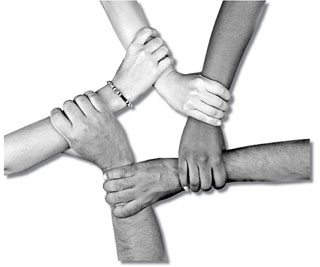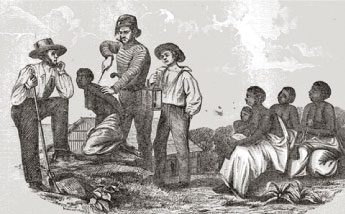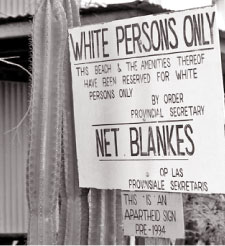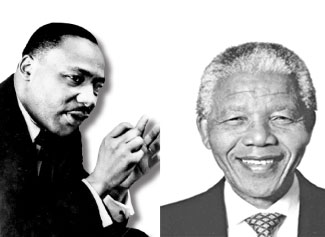|
Day and week against racism:
Equality for all
Pramod de SILVA
Do you call yourself a Sinhalese, a Tamil, a Muslim or a Burgher? Or
do you prefer to describe yourself as a Sri Lankan? The existence of
man-made divisions such as 'races' or 'ethnic communities' has been
detrimental to our national development.

The crux of the matter is that we are all humans - black or white,
Sinhalese or Tamil, Chinese or Japanese. Worse, there are instances when
we give preference to one 'race' over another. That is the phenomenon
called racism.
Racism is a belief that race is the primary determinant of human
rights and capacities and that racial differences produce an inherent
superiority of a particular group. Put into practice, racism refers to
relationships in which one group has more power than another and in some
instances, suppresses other races.
Unfortunately, it is a worldwide problem. Even in this modern,
so-called civilised world, there are people who discriminate against
others on the grounds of race, language, caste and even religion. Racism
or racial discrimination is a practice that must be shunned. People all
over the world should struggle against racism and racial discrimination.
The week starting from March 21, the Week of Solidarity with the
People Struggling Against Racism and Racial Discrimination is an
opportunity for doing just that. The week brings into focus the acute
need to fight against this injustice on a worldwide scale for multi-culturalism
to work in the true sense of the word.
The event presents on opportunity to reflect on how to deal with all
forms of bias and to reassert the importance of respect for others
regardless of their religion, culture, political beliefs, or race.
March 21 was declared International Day for the Elimination of Racial
Discrimination by the General Assembly of the United Nations as a
reaction to the murder of 69 demonstrators in Sharpeville, South Africa
in 1960.
Not ancient
Contrary to popular belief, race is not a very ancient concept.
Classifying people by skin colour and some minor facial features and
calling the categories "races" is an idea that was conceived a few
hundred years ago. In other words, "races" do not exist as distinct
biological groups with significant genetic differences among them. Skin
colour is biologically a trivial difference.
|

A slave being 'branded' at a slave auction |
There have been many recent examples of racism. Adolf Hitler believed
that only 'Aryans' should exist in Germany and Europe and ordered the
annihilation of Jews and a host of other social groups.
The black/white racial divide was common in the US and South Africa's
'White' governments followed an official policy of Apartheid, whereby
the black community was completely marginalised in every sphere of life.
'Racial profiling' of certain communities and religious groups has
become a common practice in the wake of 9/11 and other terrorist
attacks. Here in Sri Lanka, there have been communal riots inspired by
political groups with vested interests, though the people themselves
never harboured such sentiments.
The LTTE chased out Muslims and Sinhalese from the North in a clear
act of 'ethnic cleansing'. The latter phenomenon was witnessed in
countries such as Rwanda in Africa on a massive, genocidal scale.
The truth is that all humans are equal. No human being can be
'superior' to another. In the 58 years since the adoption of the
Universal Declaration of Human Rights in 1948, the international
community has made important advances in the fight against racism and
racial discrimination.
As a recent UN document points out, while progress has been made in
this direction and technology has brought the peoples of the world
closer together, the aspiration to free the world of racial hatred and
other forms of intolerance or bias remains only half fulfilled. Racism
still exists today in all parts of the world, though it may not be
institutionalised.
Firm commitment
People are disadvantaged, excluded, limited, and mistreated
systematically on the grounds of race. On the other hand, a firm
commitment to human dignity and equality reverses the influences of
racism and racial discrimination and creates a more humane, just, and
peaceful world.
However, we need to respect the fact that different peoples have
different cultures, languages and aspirations. An attempt should be made
to understand and respect these features of a particular community. As
one prominent African-American woman said, "If you only see I'm black,
you don't see me. If you don't see I'm black, you also don't see me."
It is thus important to recognise the unique attributes of each
community and create harmony among different communities. This is why
the Sri Lankan Government is striving to create a truly trilingual
society.
If every Sinhalese knew Tamil and if every Tamil knew Sinhala, our
country would not have had to face a three-decade long conflict. The
same theory applies to any country where divisions have been created due
to language, community or religion.
|

An Apartheid era signboard in South Africa |
After all, it makes sense for people of all communities to be
connected to each other in our globalised world. Life is richer and more
interesting if you have friends from many racial backgrounds.
Such differences need not cut us off from other people. It is better
to catch them young - a school where children from all backgrounds and
communities learn together, studying each other's languages, is the
ideal way to start.
Harmful attitudes
Racism is not only a social phenomenon. There are many examples of
personal racism - ideas and feelings held in the minds of individuals,
and individual behaviour. These include feeling superior to another
race, stereotyped views of one or more races, fear of people because of
their skin colour and hatred of a particular race.
|

Martin Luther King Jr (L) and Nelson Mandela: Icons in the
struggle against racism |
Personal racism also includes individual behaviour that mistreat
other people based on their skin colour or language. This is the malady
easiest to treat - we should leave no room in our hearts and minds for
communal feelings.
Indeed, no one can be blamed for harmful attitudes that have been
instilled in them or for lack of awareness. Everyone is responsible for
changing those attitudes, developing awareness, and committing
themselves to treating all people with respect. We must all build
bridges among different communities and mend fences.
This is indeed the main challenge facing Sri Lanka today. Ethnic
reconciliation has become a priority for all after three decades of
discord and rancour. There are many lessons to be learnt from the
conflict and the root causes that led to it have to be addressed.
The Government has appointed a Lessons Learnt and Reconciliation
Commission with this aim in mind. But the people themselves should take
the initiative in forging national unity - and a collective national
identity. Many other countries have successfully undertaken this onerous
task and there is no reason why Sri Lanka cannot.
The struggle against racism and racial discrimination worldwide will
be a long one. But it is a struggle that has to be won. The right to
non-discrimination on grounds of race of community is a fundamental
human right that all governments recognise.
But governments cannot do it alone, if people do not change their
attitudes on race, language and skin colour. We must make a concerted
effort to efface such thoughts from our minds to create a world that is
not divided on the lines of race. From March 21, people around the world
can embark on making this dream a reality. |

